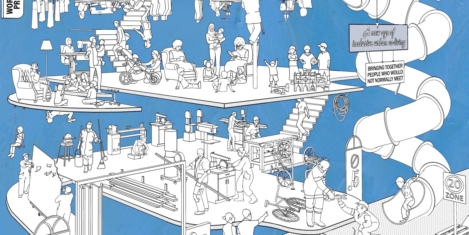May 5, 2022
Retrofit is essential for the UK’s stock of poor performing commercial property
 The UK Green Building Council (UKGBC) has published a guide that calls on businesses to retrofit the country’s poorly performing stock of commercial buildings. From 2025, every commercial building in the UK will require an energy performance certificate (EPC) which rates its energy efficiency from grade A to G. The Government is seeking to strengthen these standards and has proposed that all commercial properties being let have a minimum EPC rating of at least ‘B’ by 2030 and is considering a possible interim requirement of level ‘C’ by 2027. Buildings which fail to meet these new standards would require owners and landlords of commercial buildings to upgrade their stock. More →
The UK Green Building Council (UKGBC) has published a guide that calls on businesses to retrofit the country’s poorly performing stock of commercial buildings. From 2025, every commercial building in the UK will require an energy performance certificate (EPC) which rates its energy efficiency from grade A to G. The Government is seeking to strengthen these standards and has proposed that all commercial properties being let have a minimum EPC rating of at least ‘B’ by 2030 and is considering a possible interim requirement of level ‘C’ by 2027. Buildings which fail to meet these new standards would require owners and landlords of commercial buildings to upgrade their stock. More →










 The first Omnirama event on the 23rd of March launched the series exploring different factors challenging the world of work in a time of prevailing uncertainty. Underlying Ominirama’s raison d’etre is that recent events have turned the status quo on its head with some major structural and systemic changes taking place. Nobody seems to have any clear idea of how to deal with this enormous transformation in the ways we work All the playbooks and all the guidance that we have all relied upon for so many years have now gone out the window.
The first Omnirama event on the 23rd of March launched the series exploring different factors challenging the world of work in a time of prevailing uncertainty. Underlying Ominirama’s raison d’etre is that recent events have turned the status quo on its head with some major structural and systemic changes taking place. Nobody seems to have any clear idea of how to deal with this enormous transformation in the ways we work All the playbooks and all the guidance that we have all relied upon for so many years have now gone out the window. 























April 20, 2022
The effects of workplace change may not be the ones we expect
by Mark Eltringham • Comment, Flexible working, Wellbeing